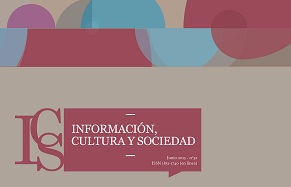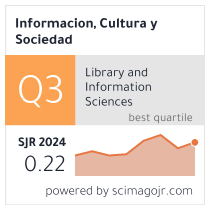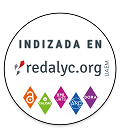Reading Clubs: Are they a relevant practice today?
Abstract
Relevant reading practices nowadays are framed under the paradigm of dialogic reading, giving relevance not only to reading but also the interaction among readers. One of these practices is a book club. They have been developed in Spain for thirty-five years in public libraries, bookstores, community centers, etc. Despite their long excistence in practice, empirical research on reading clubs is practically incipient. In this article we present the results of a qualitative research (open questionnaire, interviews and participant observation), in which we analyzed five aspects, in our opinion, fundamental: (1) the relevance of reading for those involved in clubs, (2) their reasons for participating in them, (3) selected readings, (4) the development of face meetings among its members, and (5) their current status and suggestions for their improvement. The final conclusion is that, today, book clubs are relevant.Downloads
References
Álvarez-Álvarez, Carmen y Julián Pascual-Díez. 2013. Estudio de caso sobre la formación de lectores críticos mediante textos literarios en la educación primaria. En Ocnos: revista de estudios sobre lectura. Vol. 10, 27-53.
Aranda, Jesús y Belén Galindo. 2009. Leer y conversar. Una introducción a los clubs de lectura. Gijón: Trea.
Beach, Richard y Steven Yussen. 2011. Practices of productive adult book clubs. En Journal of Adolescent & Adult Literacy. Vol. 55, no. 2, 121-131.
Burbank, Mary; Kauchak, Don y Alisa Bates. 2010. Book clubs as professional development opportunities for preservice teacher candidates and practicing teachers: an exploratory study. En The New Educator. Vol 6, no. 1, 56-73.
Calvo, Blanca 2007. Los clubs de lectura en España. En Peonza. Vol. 68, 21-29.
Carreño, Óscar. 2012. Clubes de lectura. Barcelona: EPI-UOC.
Domingo Espinet, Gemma y María dels Angels Sola Medina. 2005. Els clubs de lectura: dues experiències a dues ciutats. En Item: Revista de Biblioteconomía i Documentació. Vol. 40, 29-44.
Duncan, Sara. 2012. Reading circles, novels and adult reading development. London: Conti-nuum/Bloomsbury.
Flecha, R. 1997. Compartiendo palabras. El aprendizaje de las personas adultas a través del diálogo. Bar-celona: Paidós.
Gardiner, Verónica; Wendy Cumming-Potvin y Sandra Hesterman. 2013. Professional learning in a scaf-folded ‘multiliteracies book club’: Transforming primary teacher participation. En Issues in Educational Research. Vol. 23, no. 3, 357-374.
Gritter, Kristine. 2011. Promoting lively literature discussion. En The Reading Teacher. Vol. 64, no. 6, 445-449.
Hall, Leigh. 2009. “A necessary part of good teaching”: using Book Clubs to develop preservice teachers’ visions of self. En Literacy Research and Instruction. Vol. 48, no. 4, 298-317.
Katsarou, Eleny y Vassilis Tsafos. 2008. Collaborative school innovation project as a pivot for teachers’ professional development: the case of Acharnes’ Second Chance School in Greece. En Teacher Development. Vol. 12, no. 2, 125-138.
Kong, Ailing y Ellen Fitch. 2003. Using book club to engage culturally and linguistically diverse learners in reading, writing, and talking about books. En The Reading Teacher. Vol. 56, no. 4, 352-362.
Lyons, Becky y Chris Ray. 2014. The Continuous Quality Improvement Book Club: Developing a Book Club to Promote Praxis. En Journal of Adult Education. Vol. 43, 19-21.
McCall, Ava. 2010. Teaching powerful social studies Ideas through literature circles. En The Social Studies. Vol. 101, 152-159.
Moral, Asunción y Uxue Arbe. 2013. Una experiencia docente sobre la lectura compartida, la lectura por placer y las TICS como medio de comunicación y creatividad: Club de Lectores. En Psicología educativa. Vol. 19, no. 2, 123-126.
Pollock, Grace. 2010. Creating Transformational Spaces: High School Book Clubs with Inner-City Adoles-cent Females. En The University of North Carolina Press. Vol. 93, no. 2, 50-68.
Pulido, Cristina y Brigite Zepa. 2010. La interpretación interactiva de los textos a través de las tertulias literarias dialógicas. En Revista Signos. Vol. 2, 295-309.
Reed, Débora y Sharon Vaughn. 2012. Retell as an indicator of reading comprehension. En Scientific Stu-dies of Reading. Vol. 16, no. 3, 187-217.
Serrano, María Ángeles; Jasmine Mirceva y Rosa Larena. 2010. Dialogic Imagination in Literacy Develop-ment. En Revista de Psicodidáctica. Vol. 15, no. 2, 191-205.
Stake, Robert. 2005. Investigación con estudio de casos. Madrid: Morata.
Valls, Rosa; Marta Soler y Ramón Flecha. 2008. Lectura dialógica: interacciones es que mejoran y aceleran la lectura. En Revista Iberoamericana de Educación. Vol. 46, 71-88.
Womey, Sarah. 2007. Reading “woman”: Book club pedagogies and the literary imagination. En Journal of Adolescent & Adult Literacy. Vol. 50, no. 5, 398-407.
Authors publishing in this journal acknowledge the conditions below:
- Authors retain the copyright of their work while they transfer the right of the first publishing to the journal, under the Creative Commons Attribution-ShareAlike 4.0 International (CC BY-SA 4.0) Licence, which allows third parties to reproduce them under the condition that express mention is given to the author and to its original publication in the journal.
- Authors may enter into other contractual and independent arrangements for the non-exclusive distribution of the version of the article published in this journal (for instance, it can be published in an institutional repository or in a book). In any case, an express mention should be given to its first publication in the journal.
- It is permitted and encouraged to publish online the articles (for example, on institutional or personal pages).


























